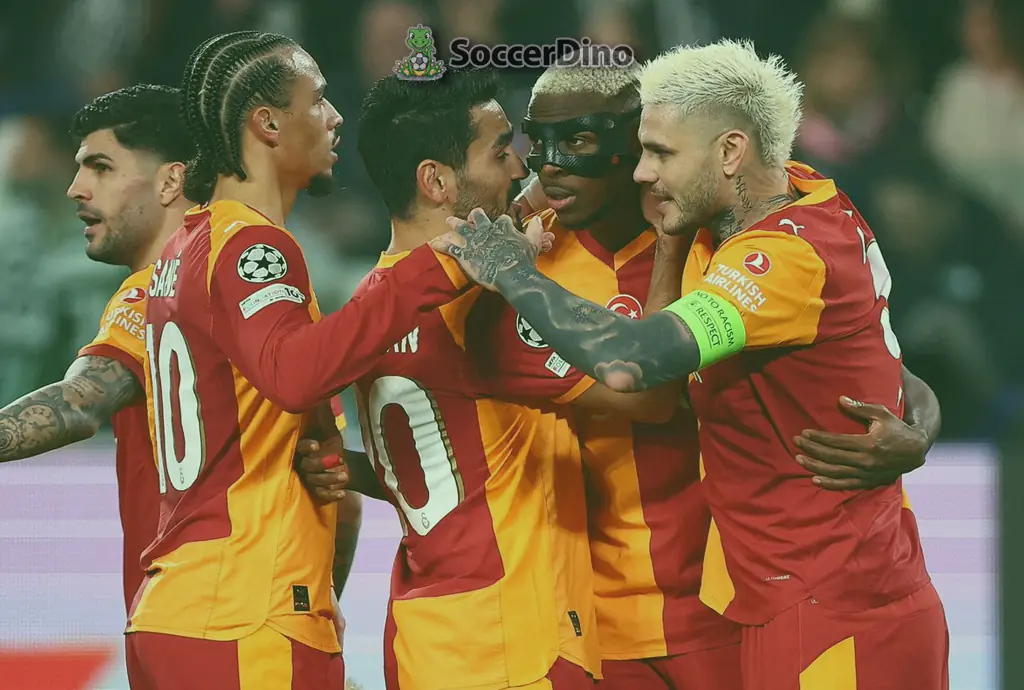Gianluigi Donnarumma had to concede a goal by Bradley Barcola after just thirteen seconds against France on Friday evening. After the match, the goalkeeper gave a remarkable explanation.

Gianluigi Donnarumma, one of the world’s most prominent goalkeepers, faced an unusual and difficult moment during Italy's match against France.
Not only is Donnarumma Italy’s first-choice goalkeeper, but he also bears the additional responsibility of being the national team’s captain. This leadership role involves not just performing between the posts but also managing various off-the-pitch duties, especially in the moments before kick-off. It was in this context, after attending to his duties as captain, that Donnarumma’s brief interaction with an acquaintance near the goal line contributed to one of the match's defining moments.
Just thirteen seconds after the start of the game, Donnarumma conceded an unexpected goal. France's Bradley Barcola, alert from the opening whistle, seized the opportunity, catching the Italian defense and their captain off guard. The Italian team found themselves down almost before the game had truly begun, and much of the blame, fairly or unfairly, fell on Donnarumma.
In his post-match interview with RAI Sport, Donnarumma shed light on the unusual situation, providing a rare glimpse into the goalkeeper's perspective during those critical opening seconds. He expressed frustration with how events unfolded, particularly his belief that the referee had not allowed him sufficient time to prepare. “I even shouted to the referee that he had to wait for me,” Donnarumma explained. “I wasn’t ready yet. I didn’t even have my gloves on properly.” His comments suggest that in the heat of the moment, he expected the match official to ensure that both goalkeepers were fully prepared before allowing the game to proceed. "Normally, a referee checks if both goalkeepers are ready," he added, pointing out what he felt was a lapse in protocol.
Despite his frustration, Donnarumma was careful not to place all the blame on the referee. He admitted that Italy, as a team, could have been smarter in handling those first moments of the match. "In those moments, we just weren't smart enough ourselves," he reflected, taking some responsibility for the team’s sluggish start. It was a candid admission from the goalkeeper, who is known for his composure and maturity despite his relatively young age for such a high-pressure role.
For Donnarumma, this incident highlighted the fine margins that can exist at the highest level of football. A brief distraction, combined with an apparent lack of coordination between the referee and the players, can have significant consequences. In this case, it led to an early goal that could have derailed Italy’s game plan. However, despite the frustrating start, Donnarumma’s leadership and the team’s resilience came to the forefront.
While Italy found themselves on the back foot immediately, the team rallied behind their captain and put in a strong defensive display for the remainder of the match. Donnarumma was keen to praise his teammates for their efforts, particularly their collective defensive work. "We made things right," he said, emphasizing the importance of the team’s response to the early setback. "It was a great defensive performance by our team. Even the attackers came back to help the defense, which brought a smile to my face."
This acknowledgment of the team’s unity and collective effort was significant. It showed that despite the early mistake, Italy remained focused and determined to secure a positive result. Donnarumma, as captain, played a key role in this, not only with his goalkeeping but also by maintaining his composure and leading by example.
The incident also highlighted the unpredictable nature of football. A game can change in an instant, and even the best players are susceptible to moments of distraction or miscommunication. Donnarumma’s quick explanation that he wasn’t fully prepared when the game kicked off and didn’t have his gloves on properly illustrates how small details can have an outsized impact. In elite football, where every second counts, such moments can be decisive.
However, Donnarumma’s ability to acknowledge both his own shortcomings and the team’s efforts to recover speaks to his maturity as a leader. At just 24 years old, he is one of the youngest captains in the history of the Italian national team, a role that comes with immense pressure. His candid post-match comments showed a willingness to take responsibility and move forward, focusing on the positives rather than dwelling on the error.
Moreover, this episode serves as a reminder that goalkeepers often face situations beyond their control. While outfield players can make mistakes and have the opportunity to make up for them during the game, goalkeepers are frequently judged by their rare moments of error, as their mistakes tend to lead directly to goals. Donnarumma’s early concession against France was one of those moments, but his overall performance and that of the team was commendable, as they managed to steady themselves and fight back.
Looking ahead, Donnarumma will undoubtedly reflect on this experience and use it to strengthen his focus and preparation. For Italy, having a captain who can admit to mistakes, praise his team, and still perform under pressure is invaluable. This combination of humility and leadership will serve Donnarumma and Italy well in their future challenges.
In the end, while the opening seconds of the match against France will be remembered for the unexpected goal, Donnarumma’s response both on and off the pitch demonstrates why he remains one of the most respected and capable goalkeepers in the world. His ability to learn from such moments, combined with the strong defensive unity displayed by Italy, bodes well for the team's continued success on the international stage.







